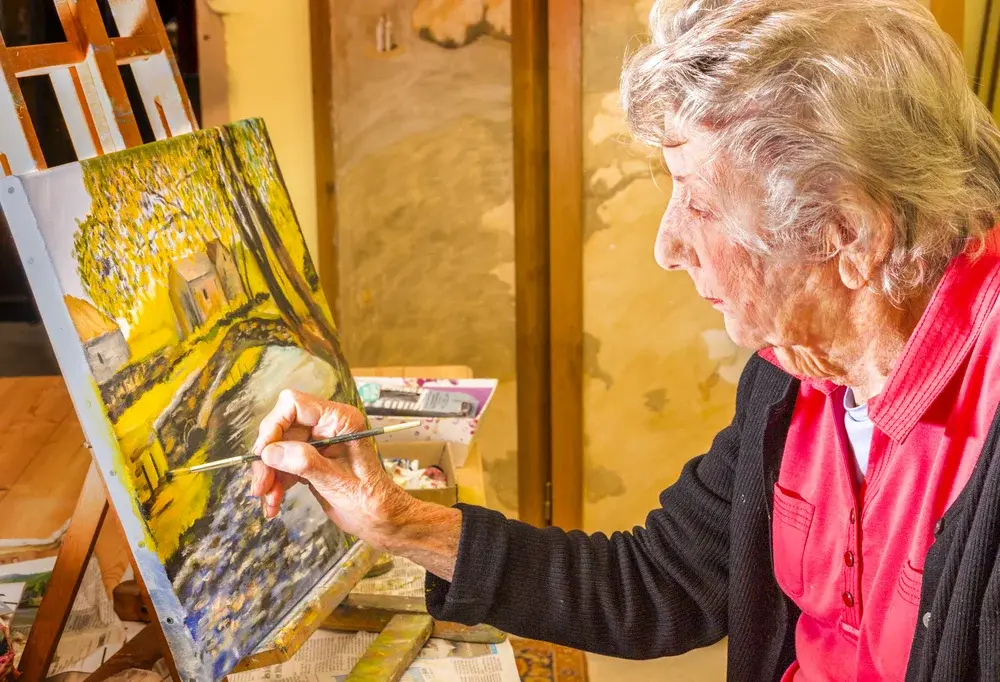Offering opportunities to upskill care staff is crucial for the health of your business and for the quality of life for everyone living and working in care

Training and upskilling care staff in a care home environment is crucial to ensure the safety, retention and overall wellbeing not only of those receiving care but of those giving it too, as well as being a crucial way of achieving regulatory compliance.
Upskilling is especially important in health and care settings because without encouraging and fostering an environment where everyone is encouraged to learn new skills or build on their current skills, there could be an increase in the chances of errors being made and care quality being compromised.
Things are changing very quickly in the care industry, and what might have been considered best practice a decade or even a few years ago could well be outdated now. For example, there was a time when most emphasis on what constituted good care was geared towards clinical care. And even though it should go without saying that clinical care is still very important, in the past few years there has been a big shift in the parameters of good and outstanding care to reach beyond just clinical care.
In other words, what at one time was considered good is now considered the standard - if you want to achieve an outstanding rating, it’s not good enough anymore to ‘just’ provide good clinical care, for example there are many other factors at play, such as resident wellbeing and person centred approaches.
Regulatory evolution and a focus on wellbeing
In recent years, there has been a focus on promoting wellbeing among older people living in care. Wellbeing is now seen as the standard for exceptional care. Beyond just meeting basic needs, now the goal is to also create an environment where older individuals can feel happy, content, independent where possible and partake in new and enjoyable experiences.
At one time it was good enough just for older adults to 'exist', now the goal is to help them 'live'.
As our Wellbeing Expert Jade Ellis explained recently: “For a long time, we’ve tended to focus on the ‘existing’ part of wellbeing, but what really makes the difference to quality of life for those living and working in care is that attention paid to the things that make a person unique – their interests, their history, their preferences, whether it’s a particular type of music they like or any hobbies they have, these are the things that in many instances make life worthwhile.”
So now there is more of an emphasis placed on wellbeing, it’s important that staff have all the tools they need to provide that level of wellbeing care as well as being able to meet the changing standards set by regulatory bodies, and this can be achieved through regular upskilling training.
That kind of training is available via Person Centred Software’s learning management system PCS LEARN, with Wellbeing & Activities Training for staff, which, through an array of interactive and insightful training bundles, offers learning and development opportunities for everybody in the home to upskill and progress in their learning journey, and as a result, provide an enhanced resident experience.
More personalised care
As well as wellbeing care, it’s important to foster a culture of constant learning and development because it will directly impact the quality of care provided as well as the overall efficiency of the care setting. Through areas like behavioural management classes or specialised dementia training, care staff can be much better positioned to provide a higher level of care to residents that focuses on a person-centred approach.
Upskilling staff to be able to handle challenging situations, for example someone living with dementia that is in distress, means that they can offer a more holistic approach to care and support for residents. Not only that, but it also has a pre-emptive measure too because staff that have received a greater level of training can learn to recognise signs and symptoms of challenging behaviour or worsening physical conditions in care home residents and know how to approach the situation before it gets even worse.
Better retention rates and recruitment prospects
The health and social care sector has been struggling with issues around staff wellbeing and as a result retention and recruitment for some time due to problems like burnout, low wages and inflexible working, and because of the issues around maintaining the right level of staff with the appropriate level of skills and experiences, there is also potential for the quality of care to suffer as a result.
For example, according to a recent article by NCFE, the turnover rate within social care is 31%, compared to the average in the UK across all employment sectors of 15%, with an 8% vacancy rate being well above the UK average across all sectors of 3%.
In addition to issues of pay, support and burnout, one of the biggest reasons for the challenges in retention and recruitment is the access to training and development opportunities. This is why upskilling is so important. While many argue there needs to be wholesale changes over the long-term to the social care industry to address the challenges around staff pay, work-life balance, workplace culture and others, upskilling staff and providing them with avenues for continued learning and career development is something that every care provider should and can offer right now if they want to retain their staff and make themselves attractive to the best potential employees.
After all, according to a recent report from Skills for Care, the vast majority of people, when asked the question of why they wanted to work in social care, said that they wanted to work with and care for people (74%). In other words, a significant majority of the people who enter the work force are doing so for the right reasons, and it’s crucial that they aren’t given a reason to want to leave an industry that needs them.
Upskilling staff means that they are supported to improve their career prospects and are given a reason to see care as a long-term, progressive and rewarding career.
Embracing technology
Another key aspect of upskilling is changing with the times; over the previous decade there has been huge digital transformation in health and social care, as products have come along that have greatly improved the efficiency, effectiveness and safety of care – this extends every aspect of person-centred care, such as care planning, medication management, staffing, family engagement and care home operations, and it’s important that staff are given every chance to stay up to date with the fast-paced, changing world of care home technology.
Upskilling means that staff don’t feel that they are being left behind by an industry that is shifting towards the use of technology – they can be instilled with a confidence to embrace digital solutions and harness them to achieve a standard of care and quality of life never thought possible before.
A culture of learning and progression
Ultimately, care homes need to embrace a learning culture that strives for constant improvements in training and development for everybody working in care. Whether it’s for staff or managers, the training provided through PCS LEARN will ensure staff are given all the tools they need to provide outstanding care for residents.
Just click below to book a consultation and find out more.






